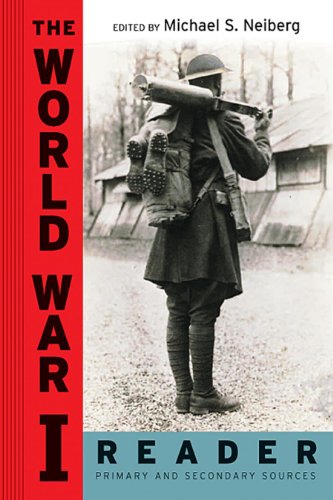The Great War in Fiction & Non-Fiction
Explore the best books on The Great War, featuring gripping fiction and insightful non-fiction. Discover must-read WWI novels, historical accounts, and powerful stories that bring the era to life.

Book
Europe's Last Summer
by David Fromkin
When war broke out in Europe in 1914, it surprised a European population enjoying the most beautiful summer in memory. For nearly a century since, historians have debated the causes of the war. Some have cited the assassination of Archduke Franz Ferdinand; others have concluded it was unavoidable. In Europe’s Last Summer, David Fromkin provides a different answer: hostilities were commenced deliberately. In a riveting re-creation of the run-up to war, Fromkin shows how German generals, seeing war as inevitable, manipulated events to precipitate a conflict waged on their own terms. Moving deftly between diplomats, generals, and rulers across Europe, he makes the complex diplomatic negotiations accessible and immediate. Examining the actions of individuals amid larger historical forces, this is a gripping historical narrative and a dramatic reassessment of a key moment in the twentieth-century.

Book
Thunder At Twilight
by Frederic Morton
From the author of A Nervous Splendor, a dazzling portrait of the epicenter of the apocalypse that was World War I


Book
A Month in the Country
by J.L. Carr
A short, spellbinding novel about a WWI veteran finding a way to re-enter—and fully embrace—normal life while spending the summer in an idyllic English village. In J. L. Carr's deeply charged poetic novel, Tom Birkin, a veteran of the Great War and a broken marriage, arrives in the remote Yorkshire village of Oxgodby where he is to restore a recently discovered medieval mural in the local church. Living in the bell tower, surrounded by the resplendent countryside of high summer, and laboring each day to uncover an anonymous painter's depiction of the apocalypse, Birkin finds that he himself has been restored to a new, and hopeful, attachment to life. But summer ends, and with the work done, Birkin must leave. Now, long after, as he reflects on the passage of time and the power of art, he finds in his memories some consolation for all that has been lost.

Book
The Proud Tower
by Barbara W. Tuchman
The classic account of the lead-up to World War I, told with “a rare combination of impeccable scholarship and literary polish” (The New York Times)—from the Pulitzer Prize–winning author of The Guns of August During the fateful quarter century leading up to World War I, the climax of a century of rapid, unprecedented change, a privileged few enjoyed Olympian luxury as the underclass was “heaving in its pain, its power, and its hate.” In The Proud Tower, Barbara W. Tuchman brings the era to vivid life: the decline of the Edwardian aristocracy; the Anarchists of Europe and America; Germany and its self-depicted hero, Richard Strauss; Diaghilev’s Russian ballet and Stravinsky’s music; the Dreyfus Affair; the Peace Conferences in The Hague; and the enthusiasm and tragedy of Socialism, epitomized by the assassination of Jean Jaurès on the night the Great War began and an epoch came to a close. The Proud Tower, The Guns of August, and The Zimmermann Telegram comprise Barbara W. Tuchman’s classic histories of the First World War era.

Book
Fields of Glory
by Jean Rouaud
One family's grandchildren recount the eccentricities and foibles of their grandparents, whose lives have remained in the timewarp of World War I fields of glory. Awarded the prestigious Goncourt Prize, this novel vaulted author Jean Rouaud from anonymity to acclaim as the freshest literary voice in France in decades.

Book
The Return of the Soldier
by Rebecca West
A soldier returns home transformed by World War I, sending shock waves through the lives of three women, in Rebecca West’s groundbreaking debut novel Jenny has been waiting for the return of her cousin, Lieutenant Chris Baldry, from the faraway front lines of the war in France. She has kept vigil alongside Chris’s wife, Kitty, who has also been mourning the death of their first child. However, when Chris returns to their isolated estate outside of London, he is a man transformed, suffering from shell shock and believing he is still twenty years old. He is baffled by his surroundings, which have somehow aged beyond his memory, and he’s hopelessly, obsessively in love with a woman. Except—the woman he’s in love with is not his wife. He doesn’t even remember her, or the son they lost. Instead, he declares his undying love for Margaret, a poor innkeeper’s daughter with whom he shared a passionate summer romance fifteen years prior. Rebecca West published her often-overlooked debut novel at the age of only twenty-six during the height of World War I, and was one of the first writers to explore the impact of posttraumatic stress in literature. The result is a tense, gripping portrait of sacrifice, regret, and the transformative power of war to alter our understanding of ourselves.

Book
The World War I Reader
by Michael S. Neiberg
A collection of primary and secondary documents that offers students, scholars, and war buffs an extensive and easy-to-follow overview of World War I.

Book
All Quiet on the Western Front
by Erich Maria Remarque
The masterpiece of the German experience during World War I, considered by many the greatest war novel of all time—with an Oscar–winning film adaptation now streaming on Netflix. “[Erich Maria Remarque] is a craftsman of unquestionably first rank.”—The New York Times Book Review I am young, I am twenty years old; yet I know nothing of life but despair, death, fear, and fatuous superficiality cast over an abyss of sorrow. . . . This is the testament of Paul Bäumer, who enlists with his classmates in the German army during World War I. They become soldiers with youthful enthusiasm. But the world of duty, culture, and progress they had been taught breaks in pieces under the first bombardment in the trenches. Through years of vivid horror, Paul holds fast to a single vow: to fight against the principle of hate that meaninglessly pits young men of the same generation but different uniforms against one another . . . if only he can come out of the war alive.

Book
Dunkirk
by Hugh Sebag-Montefiore
"Using new material from British, French, Belgian, German, Russian and Czechoslovakian archives, and interviews with the last surviving witnesses of the Dunkirk campaign, Hugh Sebag-Montefiore can at last tell the true story of how the British Army was evacuated from Dunkirk and from France in 1940."--BOOK JACKET.

Book
Good-Bye to All That
by Robert Graves
English author Robert Graves says goodbye to England, family, friends, and a way of life.


Book
The Guns of August
by Barbara W. Tuchman
PULITZER PRIZE WINNER • “A brilliant piece of military history which proves up to the hilt the force of Winston Churchill’s statement that the first month of World War I was ‘a drama never surpassed.’”—Newsweek Selected by the Modern Library as one of the 100 best nonfiction books of all time In this landmark account, renowned historian Barbara W. Tuchman re-creates the first month of World War I: thirty days in the summer of 1914 that determined the course of the conflict, the century, and ultimately our present world. Beginning with the funeral of Edward VII, Tuchman traces each step that led to the inevitable clash. And inevitable it was, with all sides plotting their war for a generation. Dizzyingly comprehensive and spectacularly portrayed with her famous talent for evoking the characters of the war’s key players, Tuchman’s magnum opus is a classic for the ages. The Proud Tower, the Pulitzer Prize–winning The Guns of August, and The Zimmermann Telegram comprise Barbara W. Tuchman’s classic histories of the First World War era

Book
Paris 1919
by Margaret MacMillan
National Bestseller New York Times Editors’ Choice Winner of the PEN Hessell Tiltman Prize Winner of the Duff Cooper Prize Silver Medalist for the Arthur Ross Book Award of the Council on Foreign Relations Finalist for the Robert F. Kennedy Book Award For six months in 1919, after the end of “the war to end all wars,” the Big Three—President Woodrow Wilson, British prime minister David Lloyd George, and French premier Georges Clemenceau—met in Paris to shape a lasting peace. In this landmark work of narrative history, Margaret MacMillan gives a dramatic and intimate view of those fateful days, which saw new political entities—Iraq, Yugoslavia, and Palestine, among them—born out of the ruins of bankrupt empires, and the borders of the modern world redrawn.

Book
The First World War
by John Keegan
The definitive account of the Great War and national bestseller from one of our most eminent military historians, John Keegan. The First World War created the modern world. A conflict of unprecedented ferocity, it abruptly ended the relative peace and prosperity of the Victorian era, unleashing such demons of the twentieth century as mechanized warfare and mass death. It also helped to usher in the ideas that have shaped our times--modernism in the arts, new approaches to psychology and medicine, radical thoughts about economics and society--and in so doing shattered the faith in rationalism and liberalism that had prevailed in Europe since the Enlightenment. The First World War probes the mystery of how a civilization at the height of its achievement could have propelled itself into such a ruinous conflict and takes us behind the scenes of the negotiations among Europe's crowned heads (all of them related to one another by blood) and ministers, and their doomed efforts to defuse the crisis. Keegan reveals how, by an astonishing failure of diplomacy and communication, a bilateral dispute grew to engulf an entire continent. But the heart of Keegan's superb narrative is, of course, his analysis of the military conflict. With unequalled authority and insight, he recreates the nightmarish engagements whose names have become legend--Verdun, the Somme and Gallipoli among them--and sheds new light on the strategies and tactics employed, particularly the contributions of geography and technology. No less central to Keegan's account is the human aspect. He acquaints us with the thoughts of the intriguing personalities who oversaw the tragically unnecessary catastrophe--from heads of state like Russia's hapless tsar, Nicholas II, to renowned warmakers such as Haig, Hindenburg and Joffre. But Keegan reserves his most affecting personal sympathy for those whose individual efforts history has not recorded--"the anonymous millions, indistinguishably drab, undifferentially deprived of any scrap of the glories that by tradition made the life of the man-at-arms tolerable." By the end of the war, three great empires--the Austro-Hungarian, the Russian and the Ottoman--had collapsed. But as Keegan shows, the devastation ex-tended over the entirety of Europe, and still profoundly informs the politics and culture of the continent today. His brilliant, panoramic account of this vast and terrible conflict is destined to take its place among the classics of world history.

Book
Tommy
by Richard Holmes
This history of World War I puts the British soldier who fought in the trenches centre-stage. It tells the story of this epic and terrible war through the letters, diaries and memories of those who fought it.

Book
The Great War and Modern Memory
by Paul Fussell
The year 2000 marks the twenty-fifth anniversary of the publication of The Great War and Modern Memory, winner of the National Book Award, the National Book Critics Circle Award, and recently named by the Modern Library one of the twentieth century's 100 Best Non-Fiction Books. Fussell's landmark study of WWI remains as original and gripping today as ever before: a literate, literary, and illuminating account of the Great War, the one that changed a generation, ushered in the modern era, and revolutionized how we see the world. Exploring the work of Siegfried Sassoon, Robert Graves, Edmund Blunden, David Jones, Isaac Rosenberg, and Wilfred Owen, Fussell supplies contexts, both actual and literary, for those writers who most effectively memorialized WWI as an historical experience with conspicuous imaginative and artistic meaning. For this special edition, the author has prepared a new afterword and a suggested further reading list. As this classic work draws upon several disciplines--among them literary studies, military history, cultural criticism, and historical inquiry--it will continue to appeal to students, scholars, and general readers of various backgrounds.

Book
The Pity of War
by Niall Ferguson
In this landmark work of history, Ferguson vividly brings back to life this terrifying period and makes a simple and provocative argument: that the human atrocity known as the Great War was entirely England's fault. 34 illustrations.